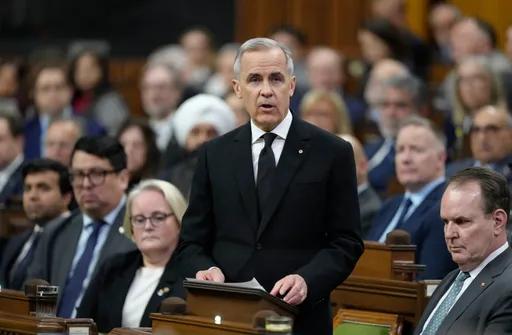Donald Trump formally won the 2016 presidential election on Monday and is set to take office on January 20, 2016. For millions of Americans, this is a nightmare; but for millions of others, it's a dream come true.
It's not just Trump who will be in the White House. There will also be a dozen other high-powered officials who will help shape his administration. The real estate mogul and businessman, who shocked political pundits by defeating Hillary Clinton last month, has decided to bring with him to Washington a cavalcade of billionaires and retired generals to help him decide how to lead the country. These appointees will still need to get approval next year by lawmakers in Congress, but with the Republican Party controlling both houses of the legislature, most are likely to be hired.
On the campaign trail Trump promised to "drain the swamp" in Washington. He would by banish influence-peddling lobbyists, insiders, and corporate interests and their "think tank" fronts from the halls of power. But some of the most powerful of his choices for cabinet are also the most connected to conservatives already in power on Capitol Hill. In keeping with his promise to bring an outsider's touch to politics, the men and women he has chosen have little or no experience in government. Wealth and experience in war are the common themes. Including Trump's own fortune, the nominees are collectively worth $11 billion dollars, theBoston Globe reports.
"I want people that made a fortune because now they're negotiating with you. It's not different than a great baseball player or a great golfer," Trump told his supporters in Iowa earlier this month, in a speech was part of a "Thank You Tour" of the US, his unprecedented victory tour.
What wealth has to do with the intricacies and experience involved with running America's school system, Trump hasn't explained, but the wealthiest nominee will have to do exactly that. Betsy Devos, likely to become the next Secretary of Education, comes from a family worth $5.1 billion. She is an advocate for privatising the public education system, which she considers to be a failure. Letting the market decide who gets educated and how well is a plan she and her family have put millions of dollars into, straight to the campaign coffers of Michigan state politicians, according to the Detroit Free Press.
Her plan to create a profit motive in education doesn't sound like the solution to critics, and could make the problem even worse.
"Introducing profit into the school system is very dangerous, for a simple reason: it creates a terrible set of incentives," writes Nathan Robinson at Current Affairs. "If we hand a voucher to a for-profit private school, or give a large grant to a for-profit charter school, there is a strong incentive for the school to give as little in return as possible. A for-profit school is no longer concerned with the interest and wellbeing of those who attend it."
Even the far less affluent nominees run counter to Trump's campaign promises. Trump's choice for Treasury Secretary, Stephen Mnuchin, is only worth $46 million, but he is a veteran of an industry that Trump loyalists blamed for the financial crisis of 2008 and the massive bailout of banks by taxpayers. Mnuchin has touted a plan to significantly reduce the tax burden for corporations, The Guardian reports.
He's also known as the "Foreclosure King" for benefiting from human misery and homelessness during the 2008 financial crisis. His private equity company, OneWest, bought up distressed mortgages and evicted families who were unable to pay back exploitative housing loans or were facing sudden layoffs thanks to the crisis. Some of the people who voted for Trump were victims of the housing crash in 2008 and blamed Wall Street.
"Steve Mnuchin & OneWest Bank swooped in after the 2008 crash & aggressively – & sometimes illegally – foreclosed on people's homes," Massachusetts Senator Elizabeth Warren tweeted, criticising Trump for making Mnuchin part of his administration. Warren is a vocal progressive who has been a vocal advocate for consumer rights.
".@realDonaldTrump wants to hand Steve Mnuchin the keys to @USTreasury – where he can make big banks even richer at the expense of families," Warren wrote.
Fair housing advocates in California have also accused Mnuchin's firms of discriminating on the basis of race.
Some of Trump's supporters are having second thoughts about their vote because of his cabinet choices. There is a Tumblr account devoted to registering the regrets of Trump voters online, called "trumpgrets.tumblr.com" – one post mentions Devos specifically:
"Also devos is a corporate elitist, dopey donald. I regret my vote for you. A conned union family," said Lisa Plunkett, a twitter user quoted on the Tumblr page.
But others are still confident in their decision, believing that independently wealthy individuals in cabinet positions will be able to resist the sway of money in politics.
"They don't need any more money. The motivation is to make pragmatic, rational business decisions. What could be wrong about that?" Roger Mansfield, 67, who owns a small business in Carlisle, Pennsylvania, told the Associated Press news agency.
The other half of Trump's cabinet has extensive experience in the Iraq war and the oil business, both of which he criticised on the campaign trail. Nevertheless, Rex Tillerson, slated to become Secretary of State, is the former head of Exxon Mobil. His nomination process could become more complex than others because of his close ties to Moscow and Russian President Vladimir Putin, which the US spymasters have blamed for trying to sway the election in Trump's favour. All the same, a recentNew York Times headline lauds him as a "flexible pragmatist." He has no government experience.
Trump's choice for Secretary of Defense, retired Marine Gen. James "Mad Dog" Mattis, made a name for himself in Iraq during the Battle of Fallujah in 2004. His choice for National Security Advisor, Gen. Mike Flynn, bitter for having been pushed out of his post in the US Army during the Obama years, has alarmed some with his vitriol against President Barack Obama and his anti-Muslim rhetoric.
"We are facing another 'ism,' just like we faced Nazism, and fascism, and imperialism and communism," Flynn told a Massachusetts synagogue in August. "This is Islamism, it is a vicious cancer inside the body of 1.7 billion people on this planet and it has to be excised."
On the domestic front, one of Trump's picks who has worried civil rights advocates the most is Jeff Sessions, who may serve as Attorney General, the nation's top law enforcement officer. Sessions has taken a hard-nosed stance against the reform of marijuana laws, which disproportionately affect people of colour. He is also unlikely to continue the Obama administration's attempts to rein in violence by police officers against the public. Additionally, he has shown a willingness to deport undocumented immigrants, a key part of Trump's platform – that's about 10 million people, some of whom have been in the US for their entire lives or who were brought there as children.
Indeed, Sessions, a GOP Senator from Alabama and the state's former attorney general, once was denied a federal judgeship in 1986 by Congress over allegations that he used a racial slur to describe one of the state's few African American county commissioners, Douglas Wicks. He has also described civil rights groups as "unAmerican."
For those who find Trump's choices for advisers and deputies to be frightening, his supporters say there's nothing anyone can do but have confidence in the president-elect.
"Do we have any choice? We have to trust him. He's going to be our president," Mansfield, the Trump voter from Pennsylvania, told AP. "Wishing him to fail would be like getting on an airliner and hoping the two pilots don't know what they're doing."
Author:Wilson Dizard






















